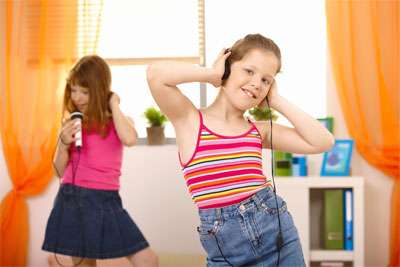How Hearing Loss Can Affect Taste
Is the crunch of a sweet, crisp apple music to your ears? What about the slurp of perfectly al dente noodles from a bowl...
Posted on December 4, 2016
Hearing Loss
A couple of weeks ago, The 2016 American Speech-Language-Hearing Association (ASHA) Convention was held in Philadelphia. ASHA also brought along its Listen To Your Buds concert series and visited several local schools to educate kids on the importance of using technology safely to prevent permanent hearing loss. Hearing experts worldwide are detecting a disturbing trend indicating that noise-induced hearing loss is growing due to the unsafe use of personal audio devices, such as smartphones, and exposure to overreaching sound levels at music concerts, nightclubs, and sporting events.
Noise-induced hearing loss is completely preventable, but once it occurs, it is irreversible.
ASHA has been proactive in delivering their “safe listening” message via the Listen To Your Buds campaign to younger children before they adopt bad (and loud) listening habits. ASHA does educate teenagers but wants to begin the conversation earlier to create a greater impact and to reach kids before the habit kicks in.
Seems like a crazy question. Of course hearing is important but did you know that:
It’s imperative that parents adopt the same “safe listening” practices that they impose on their children. Turn the volume down on your smartphone, take listening breaks, and wear earmuffs or earplugs in loud environments.
First, be aware of any signs of hearing loss, such as:
If you suspect hearing loss in your child, please make an appointment with our audiologist.
To learn more about causes and treatment, please visit our hearing loss page.
References
Know the Signs of Hearing Loss
A preventable problem: Noise-induced hearing loss in kids
The National Institute on Deafness and Other Communication Disorders
Is the crunch of a sweet, crisp apple music to your ears? What about the slurp of perfectly al dente noodles from a bowl...
You’ve been told time and time again, the volume on that TV is just too loud. Well, at least you think you’ve been told...
Some things improve with age, like wine. And some things don’t, like hearing. So, what exactly changes in our ears and auditory system as...
Hearing loss is a common issue that affects millions of people around the world, particularly as they age. However, hearing loss is more than...